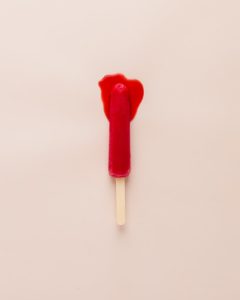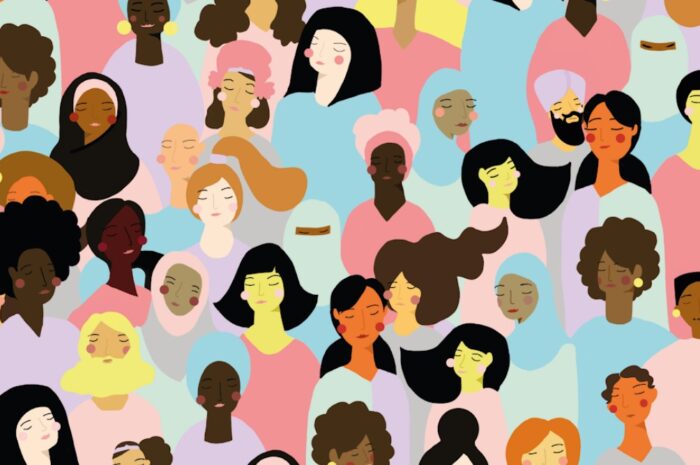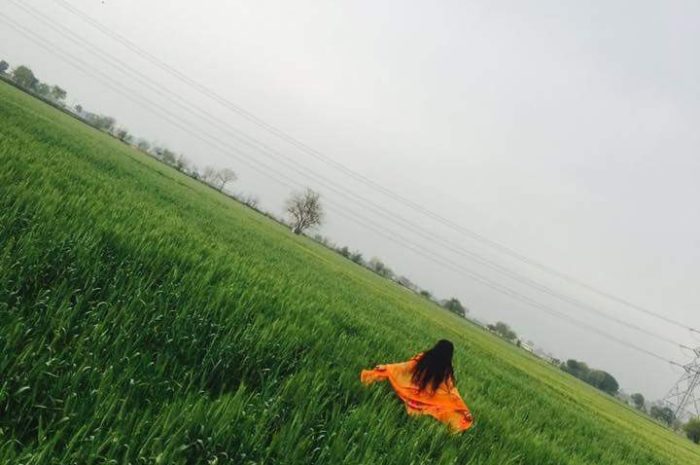
By Sheila Harrington
Jane Garvey, one of Women’s Hour’s presenters, recently sent a pre-show tweet saying that she was going to be talking about how women feel about having sex while on their period (period sex). Some of the replies she received were as follows:
‘Crikey’
A range of disgusted GIFs
‘It’s just eeewww to do that while on your period’
‘I have turned off (the radio) again’
‘Sex on periods? It’s a no from me’ (with a GIF of a man projectile vomiting).
This seems wrong on multiple levels. It seems ironic that vaginas are considered to be of such sexual and erotic interest where sex is concerned but when vaginas as parts of a woman’s anatomy carrying out their main functions such as menstruating or giving birth, are considered vile, no-go areas. Is this fair and how does this impact on women and girls?
The shame around menstruation is real. Women are told from a young age to be silent about their periods. We use euphemisms such as ‘time of the month’, ‘the curse’, ‘visit from Aunty Flo’, ‘monthlies’, etc. Studies have shown that girls and women go to great lengths to hide the fact that they are menstruating – we whisper to our friends when asking if they have a spare tampon and how many times have we gone to the toilet at school and in the office with a tampon up our sleeve so that no one can see?
Emma Barnett, broadcaster and journalist, was invited on to Women’s Hour to discuss her new book Period. In fact, Emma was the first broadcaster in the UK to announce that she was menstruating while on live TV news much to the shock and disgust of her fellow presenters. In her book she describes periods as ‘the final taboo’ – something that women are supposed to suffer in silence and just get on with it (along with many issues which affect women only such as miscarriage, pregnancy, childbirth and post-natal incontinence).
In the news this week was the tragic story of a Kenyan schoolgirl who had her period in school and bled on her uniform. Her teacher shamed her publicly calling her dirty and ordered her to leave the classroom. The girl had no sanitary towels with her and had no way of preventing the blood leaking onto her clothes. Consumed with shame, the child took her own life later that day. Her devastated mother and family campaigned outside the school and the matter is currently being investigated. The truth is in many countries (including the UK) children cannot afford sanitary pads. Young women miss up to 20% of their schooling and so never reach their potential. Many then drop out of school altogether. Period shaming and period poverty are preventing women from achieving their dreams and as a result, we all miss out.

It’s no surprise that these kinds of misogynistic attitudes are still being propagated in mainstream media. It wasn’t until 2017 that Bodyform as part of its #bodynormal campaign put out the first ever advert to depict blood by showing a red liquid being poured onto a sanitary towel as well as red drops falling down a woman’s legs while in the shower. Prior to that, adverts had always used blue liquid because censors thought that the reality of red liquid might be too explicit for the sensitivities of viewers.
There are however, those who are working to combat period shaming. The French movement Ça Va Saigner, which literally translates as ‘there will be blood’ (but is also a clever play on words as it also means ‘there’ll be trouble’), aims to normalise periods which after all affect roughly half of the people on the planet. Their Instagram account shows images of women freely bleeding onto their underwear or visibly bleeding from between their legs.
When the Duchess of Sussex gave birth to her son earlier this year and appeared in Windsor Castle a few days later for a photo call, she was wearing a smart white dress. After 10 minutes, the photo call was over, and she turned to walk back into the castle. I don’t think there could have been a woman watching who did not think how brave she was for wearing white just days after giving birth knowing how embarrassing it would be for her to be seen in the public gaze if blood had seeped through to the back of her dress. In some respects, it might have been a good thing if she had leaked onto her white dress. At least it would have drawn attention to the fact that periods are real and women bleed.
As with most taboos, the way to break them is to talk about them and to represent them on the media and in everyday life. Until women can talk freely about their periods, women will miss out on opportunities to fulfil their potential and made to suffer in silence.
As Emma Barnett says in her book,
‘…periods shouldn’t be seen as a source of shame. Instead a period should be seen as a sign of health, potential fecundity, strength and general bad-assery.’
Main Picture by Erol Ahmed



